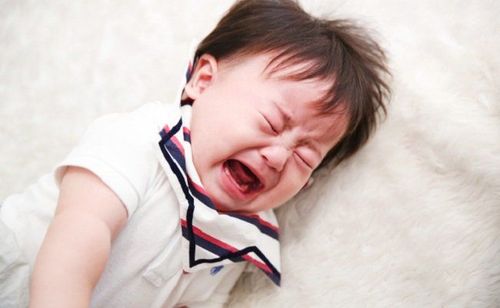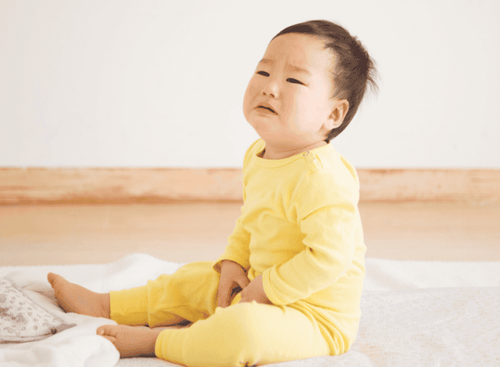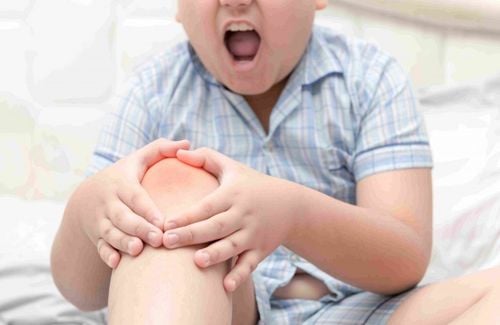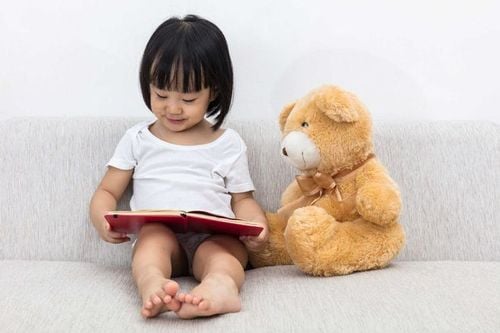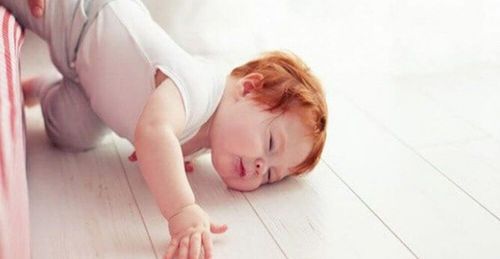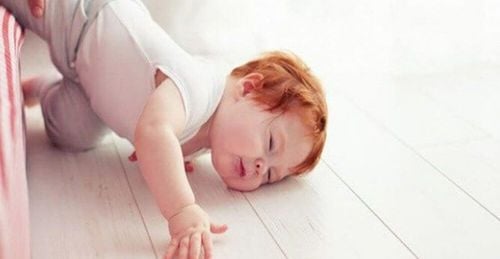This is an automatically translated article.
Keep your kids safe by understanding and anticipating common accident hazards to take preventive measures and make your child's environment safer. Every day, your child has a lot of activities such as learning to walk, or running or crawling around the house, .... These activities of children always have the potential for a series of accidents. This is inevitable when your child is always curious to explore the world, but you can take steps to prevent accidents. So what should you pay attention to? In this article, we will provide useful information to help caregivers promptly recognize common childhood accidents and how to prevent them.1. How to prevent children from getting burned?
A burn is a type of injury to the skin or other tissues caused by heat, electricity, chemicals, friction, or radiation. In children, burns are one of the most common traumatic injuries in children, which can occur in cases such as:Burns from sunburn Burns or electric shocks from touching fingers or children objects into electrical outlets or biting power cords. Flames from stoves, matches, burning cigarettes, fireplaces, fires from fires, etc. can also cause burns to children. Children get burned when touching hot surfaces such as stovetops, hot locations around fireplaces,... Hot liquids from water, boiling steam, bath water, etc. can also cause burns to children. . Here are safety tips for children:
Parents should never let children near the cooking area, avoid foods that have just been cooked, hot liquids such as boiling water, broth. ,... should be placed out of reach of children. If children must be allowed to enter the kitchen area, parents must always supervise each child's activities and keep hot items out of the reach of children. The hot water system used in the household must not be set above 50 degrees Celsius. Smoke and fire alarm systems need to be installed on all floors of the house and near bedrooms, to ensure that if a fire occurs, Parents can immediately move to a safe place.
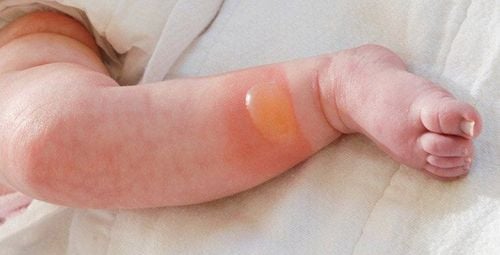
Bỏng là một loại chấn thương đối với da hoặc các mô khác do nhiệt, điện, hóa chất, ma sát hoặc bức xạ
2. When was the child poisoned?
Every day in the United States, more than 300 children have to be treated for food poisoning, chemical poisoning,... Child poisoning can happen because:Children swallow shampoo, shaving cream, perfumes, cleaning products such as hand sanitizer, dishwashing liquid, bathroom cleaners, etc. Children take drugs or vitamins with the wrong medicine, in the wrong dose. When children are exposed to carbon monoxide from gas appliances such as stoves and fireplaces. To avoid poisoning cases, parents should note:
Get rid of expired or unnecessary medicines, including prescription and over-the-counter medicines as well. need to review after using time. Medicines or personal care products, cleaning solutions and household chemicals are out of reach of small children. Install carbon monoxide detectors at certain fixed locations in the home.
3. Children have drowning accidents
Drowning remains the leading cause of death for children under the age of 14, and even small amounts of water can be dangerous for young children. To avoid possible drowning accidents, parents should note:Be careful when young children are around areas containing water such as bathtubs, buckets, toilets,... or even Both freezers and refrigerators contain water or ice. Ensure that children do not have access to hot tubs, spas, whirlpools and swimming pools without parental supervision. Keep children away from fountains, ditches, manholes or wells. Monitor children closely whenever they play in water areas. Parents should keep the toilet lid down and close the bathroom door when not in use.
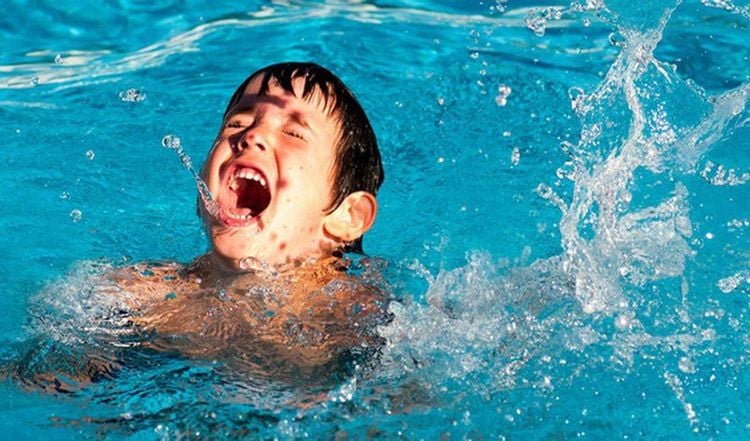
Đuối nước vẫn là nguyên nhân tử vong hàng đầu đối với trẻ dưới 14 tuổi
4. How to prevent children from falling?
Falling and tumbling situations are inevitable as children learn to stand, walk, run and climb. Although most are not serious, falls actually become the leading cause of injuries in children, including head injuries, fractures and sprains, and injuries or bruises.Some of the places where children are prone to falls include:
High chairs Beds, changing tables and other furniture Stairs Slippery floors Shopping carts Some adventure games Infant seats are not safe Vehicles baby walker Windows must not use guardrails Parents need to pay attention to the following to limit the following cases of children falling:
Install window screens, stair doors, railings guard. Take children to age-appropriate playground areas with soft surfaces Never leave children on changing tables or other furniture without parental supervision
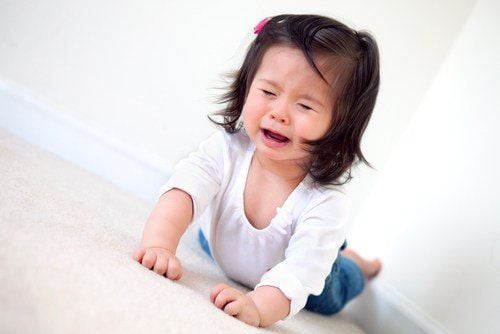
Các tình huống trẻ ngã và nhào lộn là không thể tránh khỏi khi trẻ học cách đứng, đi, chạy và leo trèo
5. What to do when the child choke
Young children often play with toys and often put a lot of things in their mouths, even objects that can be dangerous to the child's airway. Everyday items that can be dangerous to children include:Food samples (including pet food) such as jelly pieces, hard foods,... children's toys, batteries, bottle caps , balloons, marbles, pen or marker caps, magnets, buttons, rubber bands, hair clips or small bows, and water droplets are choking hazards. Jewelry such as necklaces, clothing drawstrings, baby headbands, strings, ties, and ribbons, as well as cords on toys, home appliances, window blinds and other fixtures can cause problems. strangulation in children. Improperly fastened seat belts in a highchair or stroller can cause a baby to slide down and get stuck. In old cribs with drop rails can trap babies and blankets, pillows, crib mattresses and air mattresses can lead to suffocation. Parents should keep the following tips in mind for children:
Place your baby's crib and bed away from windows with curtains or cords. Check between the sofa cushions and the seat for small dropped toys that your baby can use his or her hands to find. Never place your baby on his or her stomach on a soft surface. Parents should learn or take classes that teach choking first aid and CPR, and make sure anyone caring for a child is trained in this course to Can be used when choking situations may occur.
6. Other common injuries.
There are many situations that can lead to an accident in a child, even in some situations that parents cannot expect. Here are other injuries to watch out for:Children with nose injuries caused by running into a stationary or loose object on a hard surface, or when the direction of the toy is misaligned and thrown children often in situations where they fight with other children. Objects stuck in nostrils or ears, such as small stones, pebbles, peas, etc. Cuts and scratches from sharp nails, pets, sharp objects, furniture edges, sticks and other sharp objects outside. Eye damage caused by dust, cuts, chemical sprays or other impurities. Bites from animals, insects or other children Parents need to protect children in all possible cases of injury, keep children safe. In addition, parents should attend first aid courses for children when that situation occurs.
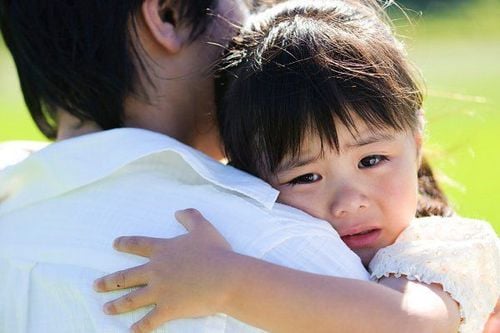
Trẻ có thể bị chấn thương mũi do va đập vào các vật cứng khi chạy nhảy
7. Accidental injury while in a car
Cars also become a danger for children, not only traffic collisions can lead to injuries to children, but even careless things of parents can put children in dangerous situations as follows: :The design of the car seat is not suitable for the child, which can cause the child to fall while sitting in the car. Children get heatstroke or suffocate when parents accidentally forget their children in closed cars. Children are around an area where vehicles are stopped or about to go, because children are young, so sometimes driving can lose sight and collide with children. Lock car windows to make sure children can't climb inside. Parents should pay attention and avoid the above situations to ensure that children do not have an accident when sitting in a car.
If the child has any serious problems, take the child to medical facilities quickly for timely treatment.
As a key area of Vinmec Health system, Pediatrics Department always brings satisfaction to customers and is highly appreciated by industry experts with:
Gathering a team of top doctors and nurses in Pediatrics : Including leading experts with high professional qualifications (professor, associate professor, doctorate, master), rich experience, worked in big hospitals such as Bach Mai, 108.. Doctors All doctors are well-trained, professional, conscientious, knowledgeable about young psychology. In addition to domestic pediatric specialists, the Department of Pediatrics also has the participation of foreign experts (Japan, Singapore, Australia, USA) who are always pioneers in applying the latest and most effective treatment regimens. . Comprehensive services: In the field of Pediatrics, Vinmec provides a series of continuous medical examination and treatment services from Newborn to Pediatric and Vaccine,... according to international standards to help parents take care of their baby's health from birth to childhood. from birth to adulthood Specialized techniques: Vinmec has successfully deployed many specialized techniques to make the treatment of difficult diseases in Pediatrics more effective: neurosurgery - skull surgery, stem cell transplantation. blood in cancer treatment. Professional care: In addition to understanding children's psychology, Vinmec also pays special attention to the children's play space, helping them to have fun and get used to the hospital's environment, cooperate in treatment, improve the efficiency of medical treatment. If you have a need for medical examination with experienced pediatricians at Vinmec, please make an appointment on the website to be served.
Please dial HOTLINE for more information or register for an appointment HERE. Download MyVinmec app to make appointments faster and to manage your bookings easily.
Reference sources: babycenter.com, healthpartners.com



